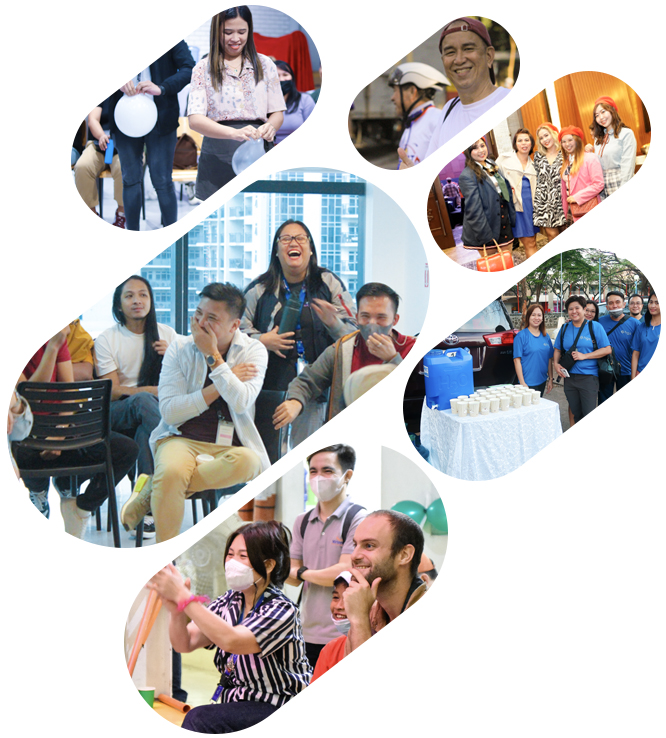
Have you ever admired a leader who effortlessly inspires others, navigates challenges, and brings out the best in their team? Maybe it was a manager who supported your growth or a colleague who took charge during a tough project. The good news is that leadership isn’t just for people with fancy titles—it’s a skill anyone can develop. Whether you're aiming for a promotion, planning to switch careers, or simply wanting to make a greater impact at work, your leadership skills can set you apart. Are you now wondering, “How can I improve my leadership skills?”
Let’s break down the concept of leadership skills, why they’re essential for your career, and the practical ways to improve leadership skills.

What are Leadership Skills?
Leadership skills refer to the abilities and traits that allow an individual to guide, motivate, and manage a team towards achieving common goals. These skills include communication, decision-making, problem-solving, and emotional intelligence. They are critical not only for those in managerial roles but also for anyone seeking to influence and guide others in a professional setting.
Why Are Leadership Skills Important?
Here are some reasons why learning ways to improve leadership skills is essential:
- They increase your chances of securing promotions and leadership roles.
- Strong leaders are better equipped to handle workplace challenges and solve problems.
- Effective leadership fosters a positive and productive work environment.
- Leadership skills enhance communication, conflict resolution, and decision-making.
- They build trust and respect among colleagues, improving collaboration.
- Leaders with well-rounded skills can manage diverse teams and navigate complex situations.
- Developing leadership abilities boosts personal confidence and professional credibility.
How to Improve Your Leadership Skills
Here are several practical strategies to enhance leadership skills and position oneself for success:

Identify Your Strengths and Weaknesses
Before you can improve leadership effectiveness, evaluate your current abilities. Conduct an honest self-assessment to identify areas where you excel and areas where you need improvement. You can ask for feedback from colleagues or supervisors or use tools such as 360-degree feedback surveys to gain insights.
Once you've identified your strengths, focus on leveraging them while working on areas that need development. For instance, if you’re confident in your communication but struggle with time management, addressing the latter will help you become a more well-rounded leader.
Understand Leadership Styles
Leadership is not one-size-fits-all. Understanding the various leadership styles—such as transformational, transactional, and servant leadership—can help you decide which style best suits your personality and objectives. Each style has its strengths and weaknesses, and the best leaders are able to adapt their approach depending on the situation and the individuals they’re working with.
Understanding different leadership styles can improve leadership skills and tailor your approach to maximize effectiveness in diverse environments. For example, while you may be naturally inclined towards a more authoritative leadership style, you might find that a more collaborative approach works better for your team.

Target Specific Skills
Leadership is a broad concept. For understanding how to strengthen leadership skills, it’s useful to target specific areas for improvement. Start by focusing on the skills that are most relevant to your current role and career goals. Key leadership skills include:
- Communication – The ability to convey information clearly and inspire others.
- Decision-making – Being able to make well-informed and timely choices.
- Emotional intelligence – Understanding and managing your emotions and those of others.
- Problem-solving – Identifying challenges and finding solutions.
Once you've identified the skills you need to develop, create a structured action plan to improve leadership skills and work on it. For example, if working smart in customer service is essential to your role, enhancing your communication and emotional intelligence can directly improve your interactions with customers and team members.

Expand Your Network
Leadership isn’t just about managing people—it’s also about building connections and fostering relationships. Expanding your network throughout the Philippines and beyond can expose you to new ideas, perspectives, and opportunities that will contribute to your leadership growth. Surrounding yourself with mentors, colleagues, and industry professionals can provide valuable insights and feedback, helping you understand ways to develop leadership skills that you may not have considered. Joining professional organizations, attending conferences, and networking both online and offline can all help expand your influence and leadership capacity.
Get a Coach or Mentor
One of the most effective ways to improve leadership skills is to seek guidance from a coach or mentor. A coach can provide personalized feedback, helping you address specific challenges and improve your approach. A mentor, on the other hand, offers wisdom based on their own experiences and can help you navigate complex career decisions.
Read and Research
Continuing education is a crucial component of leadership development. There is a wealth of books, articles, and online courses dedicated to leadership principles and strategies. Engaging with this content will broaden your understanding of leadership theories, techniques, and case studies. Also, it will help you stay current on leadership trends and practices in the Philippines, making you a more informed and effective leader.
Take on Leadership Roles in Your Current Position
If you're already in a professional environment, taking on leadership roles, even small ones, is one of the most effective ways to improve leadership effectiveness. This can be anything from leading a project to mentoring new employees or taking responsibility for team initiatives. By stepping into leadership positions, you will gain practical experience that will help you refine your skills. If you’re looking for ways to elevate your career through leadership, consider exploring upskilling for career growth opportunities and actively pursuing leadership roles in the Philippines.
Practice
Like any skill, leadership improves with practice. The more you practice your leadership abilities, the more confident and competent you’ll become. Look for opportunities to lead, whether within your current organization or through volunteer work outside of it. Consistently practicing leadership will allow you to refine your decision-making, communication, and problem-solving skills.
Final Thoughts
Strong leadership skills open doors to new career opportunities. By focusing on how to enhance leadership skills, you can grow professionally and contribute effectively to your organization. Whether you are leading a team or preparing for a leadership role, consistently working on these skills will set you apart.
Developing leadership abilities within customer service can pave the way for further advancement in your career. If you are looking for customer service jobs in the Philippines, consider joining HGS Philippines, where leadership and career growth opportunities await.
Frequently Asked Questions (FAQs)
What are the five qualities of a great leader?
Great leaders possess communication skills, emotional intelligence, adaptability, problem-solving abilities, and a clear vision. These qualities help them lead teams effectively and make informed decisions.
How do leadership skills contribute to career advancement?
Leadership skills enable professionals to take on higher responsibilities, manage teams, and drive business success. Companies value employees who can lead, strategize, and execute plans efficiently.
What is the best example of leadership?
A good example of leadership is a manager who motivates their team, resolves conflicts, and fosters a positive work environment. A leader who supports employee growth while achieving business goals demonstrates strong leadership.
What are the key skills for leadership?
Key leadership skills include communication, decision-making, emotional intelligence, time management, and strategic thinking. These skills contribute to effective leadership and career progression.
 Philippines
Philippines Canada
Canada Colombia
Colombia India
India Jamaica
Jamaica UK
UK US
US SA
SA



